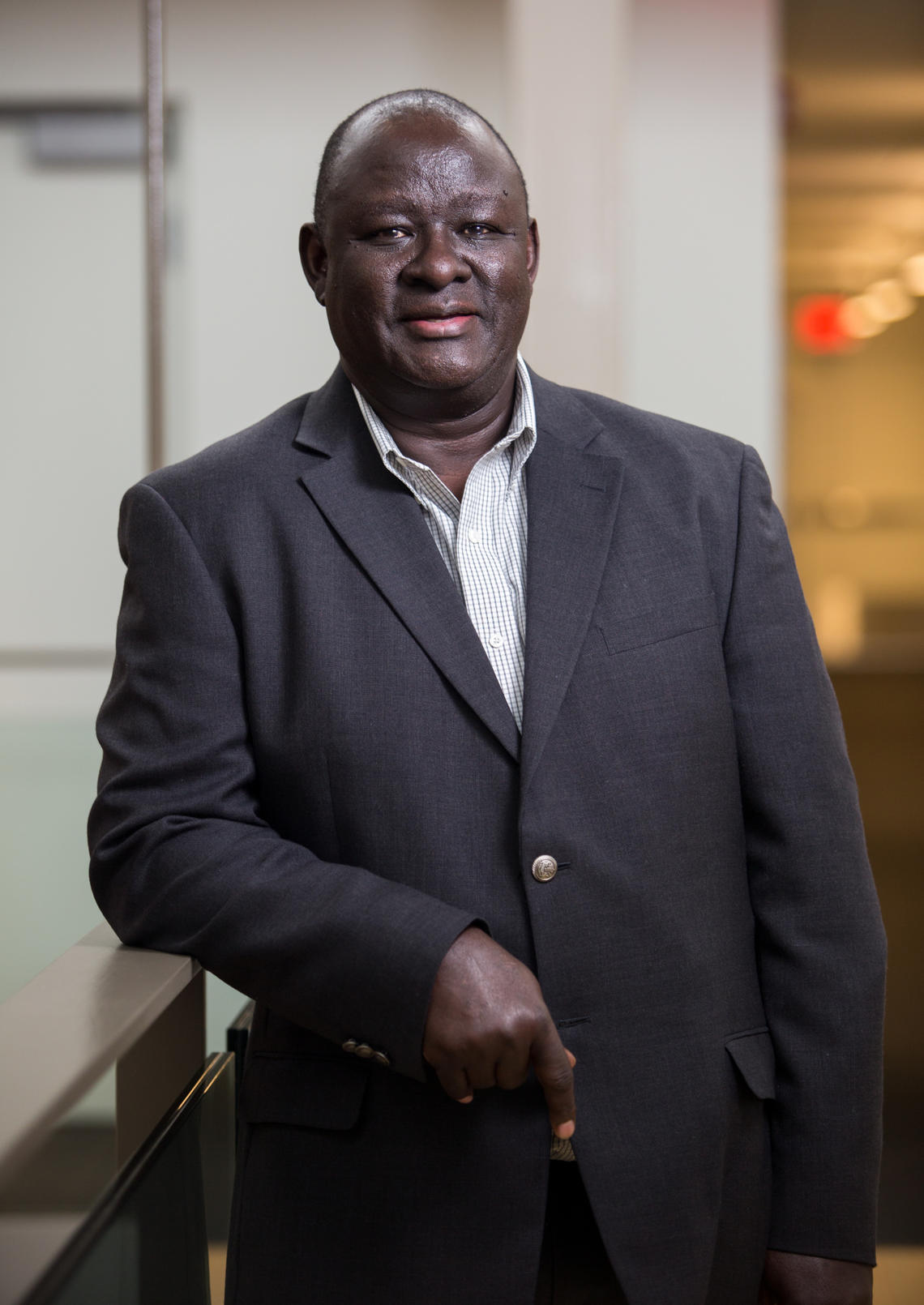Nov. 29, 2018
One man's journey from managing foreign affairs in Africa to advancing inclusion on campus

New education specialist William Yimbo uses expertise to advance diversity, equity and inclusion.
Riley Brandt, University of Calgary
While most new grads would be excited to land a job in their field, before the ink finished drying on his first university degree, William Yimbo went to work for the President of Kenya.
“I was born and raised in Kenya. As soon as I graduated, I was employed in the president’s office in public administration,” says Yimbo, who now holds a PhD. “I represented the president in managing affairs of government for the best part of 15 years and was later redeployed to the Ministry of Foreign Affairs.”
Throughout his nearly two-decade term with the Kenyan government, Yimbo was involved in every development-related issue imaginable, including education, poverty, disease control, national security and public relations. When he wasn’t chairing as many as 30 committees, he led the installation of internet-enabled systems in Kenya’s 34 embassies around the world.
Though Yimbo admits he had landed nothing short of a dream job — “Who doesn’t want to work for the president?” — he knew he would eventually return to the world of academia.
While on sabbatical, his first real break in more than 17 years, Yimbo decided the time was right to go back to school, a decision that eventually led him to the United States, where he completed a master's in public affairs and a PhD in mass communication.
From there, Dr. Yimbo ventured north to Calgary where he did a four-year stint at the Calgary Catholic Immigration Society and discovered his passion for diversity and inclusion work, a profession he is happily continuing here at UCalgary as the new education specialist in the Office of Diversity, Equity and Protected Disclosure (ODEPD).
Education specialist brings wealth of knowledge
Although Yimbo’s fascinating career path doesn’t explain exactly how he ended up here, it does shed light on why he’s an excellent addition to the dedicated team in the ODEPD.
Managing a diverse government portfolio that extends from equitable and sustainable social development and human rights through to foreign affairs is an immense responsibility that cultivated many skills necessary to operate within an institution, effectively balancing the needs of various units and departments.
Paired with his experience creating inclusive environments for immigrants and training social workers to be culturally responsive, Yimbo has the skills to advance diversity, equity and inclusion on campus. In fact, he’s already begun.
“I have gone around to the different faculties and units here as a way of learning about each area’s diversity efforts and opportunities, to assess where they are at in terms of progress with diversity and inclusion, and where there are gaps, to understand how the ODEPD can help,” he says.
“I have found there is a lot of good intention here and a lot of tremendous work has been done. I believe that my role can contribute to creating greater understanding and supporting the progressive action that is already being taken by individual faculties and units.”
In the short time Dr. Yimbo has been here, he’s set his sights on making topics on diversity, equity and inclusion more accessible for members of our campus community. For Yimbo, that comes with strategic collaborations across the university and shifting the discourse to welcome our community to take part in conversations about diversity and inclusion.
“There has to be a lot of connectivity and reciprocity if we want to make progress. It’s important to give voice, build bridges and get people to feel comfortable and confident in their ability to address issues of diversity and inclusion,” says Yimbo.
“I come from a country that was colonized for nearly 70 years. What if, instead of establishing imperial governments, the colonialists had recognized, acknowledged and respected the local cultures and institutions, and worked collaboratively to make change? That’s what real diversity and inclusion looks like, and I believe we can do that here.”
